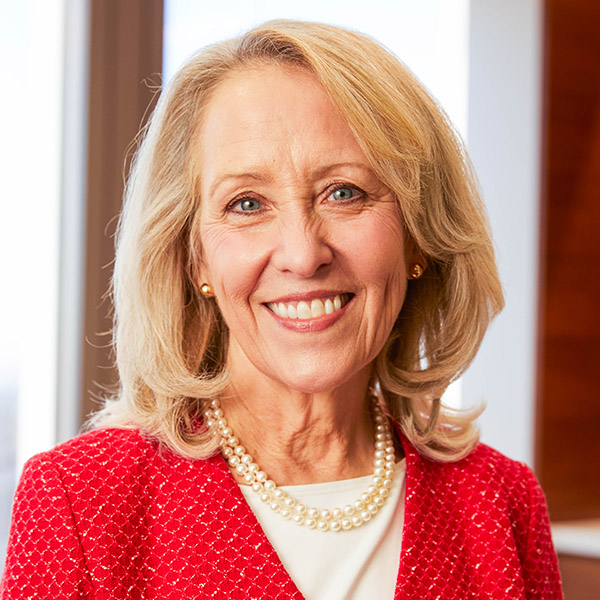Wealth Planning
Since the COVID-19 outbreak, I’ve had a lot of frank discussions with clients about risk. After the market drop in February, and with continuing uncertainty around the coronavirus, many investors want to limit their exposure to markets.
However, one lesson I’ve learned in my more than 30 years of investment industry experience is that “risk” has different meanings in different situations. So often, investors think of risk purely in terms of market losses — that is, the financial impact on their wealth from investments falling.
But when you focus on long-term goals rather than short-term losses, another kind of risk becomes clear: By sitting on the sidelines, you might not experience enough growth to reach your objectives. Part of my job at Capital Group Private Client Services is helping clients accurately identify risk and creating plans that can help them stay prudently invested through the difficult times.
Many investors let worries, not research and data, drive their choices.
Looking around the industry, I see too many investors staying in cash because they worry about potential loss, and not enough people thinking about how to reach their goals. Some people are waiting for a solution to the pandemic, while others are holding off until after the U.S. presidential election. Still others worry that the market is overvalued.
But there have always been reasons not to invest, and right now it seems there’s always another threat — and another reason to stay in cash — just around the corner. The truth is that just about every choice we make requires some degree of risk-taking. Investing is no different. The key is to find balance. It’s important to take enough risk to pursue growth, but not so much that you become uncomfortable with your holdings or the volatility that you’ll inevitably experience.
Fortunately, investors have access to tools and advisors that can help them reach their goals. Capital Group Private Client Services can quantify a range of potential outcomes for clients under varying portfolio allocations, and that knowledge can help them find the confidence to stay consistently and prudently exposed.
Once you know what you want to do, work to achieve it.
Of course, understanding how to achieve your investing goals is just the first step. The next one is harder — creating an appropriate asset allocation and using strategies that have a high probability of doing what they’re supposed to do.
That’s not as simple as it sounds. Consider fixed income. Very few people think of fixed income as a source of risk; rather, they think of it as offering some reliability. And it can — if you have the right kind of securities. Many investors unknowingly undermine the defensive nature of their bond portfolios by looking for higher yields. Those payouts can be tempting when interest rates are low, but they can come with hidden downsides, such as higher rates of default and far more volatility along the way.
Preventing that kind of accidental risk is why we stress the importance of owning bonds that act like bonds. From my perspective, structuring a bond portfolio to help provide stability where it’s intended is truly a game changer. Often, the attitude is that “fixed income is just fixed income,” but that’s just not true. Different fixed income securities act in different ways. If you’re seeking investments that can help offset the volatility in your stock portfolio, you must be very selective.
While it’s critical to get the fixed income side of your portfolio in order, investors also need to recognize how research can help separate good equity investments from merely acceptable ones. Think about index funds; many of the commonly used ones are capitalization-weighted, so they’re essentially collections of the most popular stocks in a specific slice of the market. Being listed in an index isn’t necessarily an indicator of long-term growth potential.
But if you know your portfolio reflects thoughtful decisions and careful selections by portfolio managers and analysts who have done real homework on the companies — if they’ve really gotten to know the management, the competitors and the industry itself — you’re likely going to feel a lot more confident during difficult periods. Of course, even highly vetted stocks can disappoint. Down markets will happen, and they can and do weigh on well-managed businesses as well as weaker companies. But if you know that deep research is at the core of your investments, you’re likely better prepared to stick it out during periods like the COVID-19-related selloff earlier this year. And, of course, you must be invested if you want to take part in a rising market.
Capital Group Private Client Services has that kind of deep research. Our equity strategies have sought to provide downside preservation in order to shield investors from the worst of a market decline. I think that’s a confidence builder, and it can help galvanize investors to stay the course and benefit from any rebounds — and so far every down market has been followed by a recovery.
So when you are thinking about risk, think holistically. If you’re overly focused on short-term market movements, you could end up sitting on the sidelines for too long, and that could mean missing the chance to participate in growth opportunities that can help you achieve your long-term investment objectives.

 Sandra Morelli
Sandra Morelli